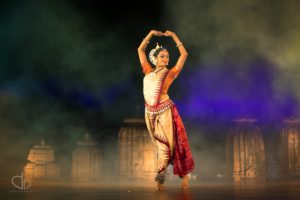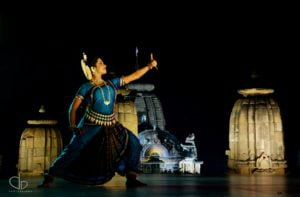My Stay In Odisha Changed The Course Of My Life: Dance Photographer Debojyoti Dhar

Thirteen years ago, teenager Debojyoti Dhar from Howrah in West Bengal came to Cuttack to study architecture at the Piloo Mody College of Architecture. Little did Debojyoti imagine then that he would not return to his homeland after completing his graduation. His passion for dance photography and bonding with the Odissi community has made him choose the land of Odissi as his home-away-from-home.
The professional architect has established himself as the most-sought after dance photographer in Bhubaneswar. During the past 10 years, he has shot and documented about 100 festivals besides developing portfolios of scores of Odissi dancers from across the globe.

Debojyoti’s specialisation in Odissi dance photography apart, he takes a keen interest in documenting and highlighting Odisha’s temple architecture through his work.
Excerpts from an interview with Odisha Bytes:
You were born and brought up in Howrah, West Bengal. But why did you come all the way to Cuttack to study architecture?
Since my childhood, I was very much attracted towards art. So after my Higher Secondary, I was very curious to know about the subject of architecture. But in West Bengal, there were only two government colleges with very limited seats in architecture. So I decided to come to Cuttack for my entrance exam and got admission. I did not imagine then that my stay in Odisha would change the course of my future life and career.
Why did you prefer to take up architecture as your career?
I belong to a family of artists. Since childhood, I used to visit historical places with my parents. It enhanced my attraction for monuments and the stories related to the places. Architecture is a subject that is a classic combination of design, aesthetic sense and technology. So I choose this profession which is best suited for me.
How did you get interested in dance?
I was very fond of dance, theatre and music since I was a kid. My mother was a dancer in her youth. She always inspired me to take a keen interest in all sorts of performing arts and cultural activities. My sisters were also dancers. This is a common factor in every Bengali family that the children are encouraged to get exposure to cultural activities. I learnt Hindustani classical vocal and fine art as a child.

How did you venture into dance photography?
It happened during my college days in Cuttack. We had architectural photography as a subject. So, I was trying to learn the basic techniques of camera. In 2010, my sister and Odissi dancer Pompi Paul suggested me to do photography for Odissi Nritya Mela (dance festival) in Kolkata being conducted by her Guru Poushali Mukherjee. Without any prior experience and with my minor digital camera, I took as many photos of the performances as possible. Fortunately, many of the dancers liked my clicks. Since then, I have not looked back.
How do you manage both the professions, architecture and dance photography?
It is really very tough. I am lucky that my boss has granted me the freedom to carry on my passion and mission for dance photography alongside my profession as an architect. The biggest challenge is time management as I am required to be at the auditorium frequently to shoot live performances. However, I still manage for the sake of my love and commitment to dance-photography.
Can dance photography be a career?
It’s a very difficult question. Nothing is impossible if one has the determination. However, it would be too difficult to earn a decent livelihood. Therefore, I have opted to have a permanent job as an architect. I suggest that one who wishes to choose it as a full-time profession should enlarge the area of operation to videography, post production, website designing and social media handling in order to be in demand.
Who is your favourite dance photographer?
Avinash Pasricha, the icon of Indian classical dance photography. He has diligently documented the legends, stars and stalwarts. And he never says no to any artiste, known or unknown. I wish, I could work with him.
You do both outdoor and indoor shoots. Which one is your favourite?
Both are my favourites. However, I enjoy shooting live performances. They always throw a challenge to the photographer to capture the right mood or posture that remains for a second. There won’t be any chance of re-takes in live shows unlike outdoor shoots. So I enjoy clicking live concerts a lot.
What are the special skills that a dance photographer needs to have?
One must have a fair sense of dance, its pace and rhythm (laya and taal). The skill develops with years of practice and experimentation. It helps the most to attend the stage rehearsals and to know the light designs before the performance; so that one would remain ready for the right moment in the final stage performance. I strongly believe that the dancer and the photographer must develop a good understanding between them to get the best result.
What is your future plan with dance photography? Will you make it your full-time profession? And will you settle down in Odisha?
I believe photography is an art form. Especially in dance photography, I find an unlimited platform in which I can learn and experience the beauty of Indian art. I think, I have just started my journey in that field of this art. I would love to have it as my full-time profession, if it offers me financially security for my livelihood. Otherwise, I will continue as an architect and photographer.
Odisha is a wonderful state for artistes and art lovers. Being here in Odisha in itself is a wonderful experience. I would love to settle down in Odisha.

Comments are closed.